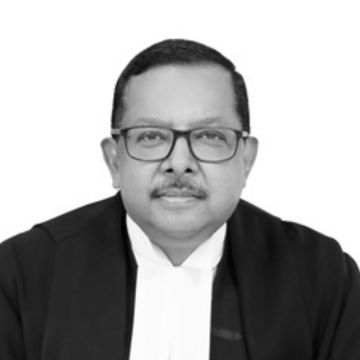Non-Hindus’ Leasing Rights in AP Temple Premises
T.M.D. Rafi v State of Andhra Pradesh
The Supreme Court will decide the constitutionality of an Andhra Pradesh law barring non-Hindu vendors from leasing property within the Mallikarjuna Temple premises. The Court will decide whether the law is arbitrary, discriminates against non-Hindus, and violates the principles of secularism.
Pending
Parties
Petitioner: T.M.D. Rafi T. MD. Ali P. Jaffer Bee Shaik Nymad T.M. Rabbani S. Malik T.M. Basha Sayyad Najimun S. Murthuj Vali Shaik Murthuja Vali S. Malik Sha
Lawyers: Gaichangpou Gangmei
Respondent: The State of Andhra Pradesh The Commissioner of Endowments, Andhra Pradesh Bramaramba Mallikharjuna Swamy Vari Devastanam, Srisailam A. Aravind Reddy Shaik Iqbal K. Aslam Basha G. Khadar Basha G. Imam Saheb S. Javid
Lawyers: Mahfooz Ahsan Nazki Gopal Jha
Case Details
Case Number: SLP(C) No. 001989 - / 2020
Next Hearing: February 6, 2024
Last Updated: February 6, 2024
Key Issues
Was the AP Government’s ban on non-Hindu vendors’ leasing property within the Mallikarjuna Temple premises arbitrary and discriminatory?
Did this ban violate the principles of secularism?
Case Description
The Commissioner of Endowments of the State of Andhra Pradesh issued a Government Order directing non-Hindu tenants to vacate the Lord Mallikarjuna Temple in Srisailam in May 2015. Nearly a hundred non-Hindu vendors sold their wares within the temple premises at the time.
Giving teeth to this Government Order, the State of Andhra Pradesh amended the A.P. Charitable and Hindu Religious Institutions and Endowments Immovable Properties and Other Rights (other than Agricultural Lands) Leases and Licenses Rules, 2003 in November 2015. The amended Rules prohibit non-Hindus from becoming tenants of the Temple.
Muslim vendors challenged this Amendment later that year at the Andhra Pradesh High Court. They claimed that the Amendment violated non-Hindu vendors’ Rights to Equality and Non-Discrimination. Further, they urged that the Amendment violated the principles of secularism.
The State argued that the Amendment protected the interests of the Hindu devotees, who were inconvenienced by the worship of non-Hindu deities and the distribution of meat including beef by the non-Hindu vendors. The State additionally claimed that it was empowered to pass laws to reform Hindu temples.
The Temple Administration said that its decision to vacate non-Hindu tenants could not be challenged on the basis of fundamental rights violations as it was not an institution owned or managed by the State.
In September 2019, the High Court accepted the arguments of both the State and the Temple Administration, upholding the Amendment.
Muslim vendors challenged this judgment in the SC on January 18th 2020. A two-judge Bench comprising Justices D.Y. Chandrachud and K.M. Joseph passed an interim order staying the High Court judgment on January 27th 2020.
On December 18th 2021 a two-judge Bench comprising D.Y. Chandrachud and A.S. Bopanna JJ passed an interim order directing that none of the vendors may be excluded from becoming tenants of the Temple on the basis of their religious identity.
The case will next be heard on January 18th 2022.


